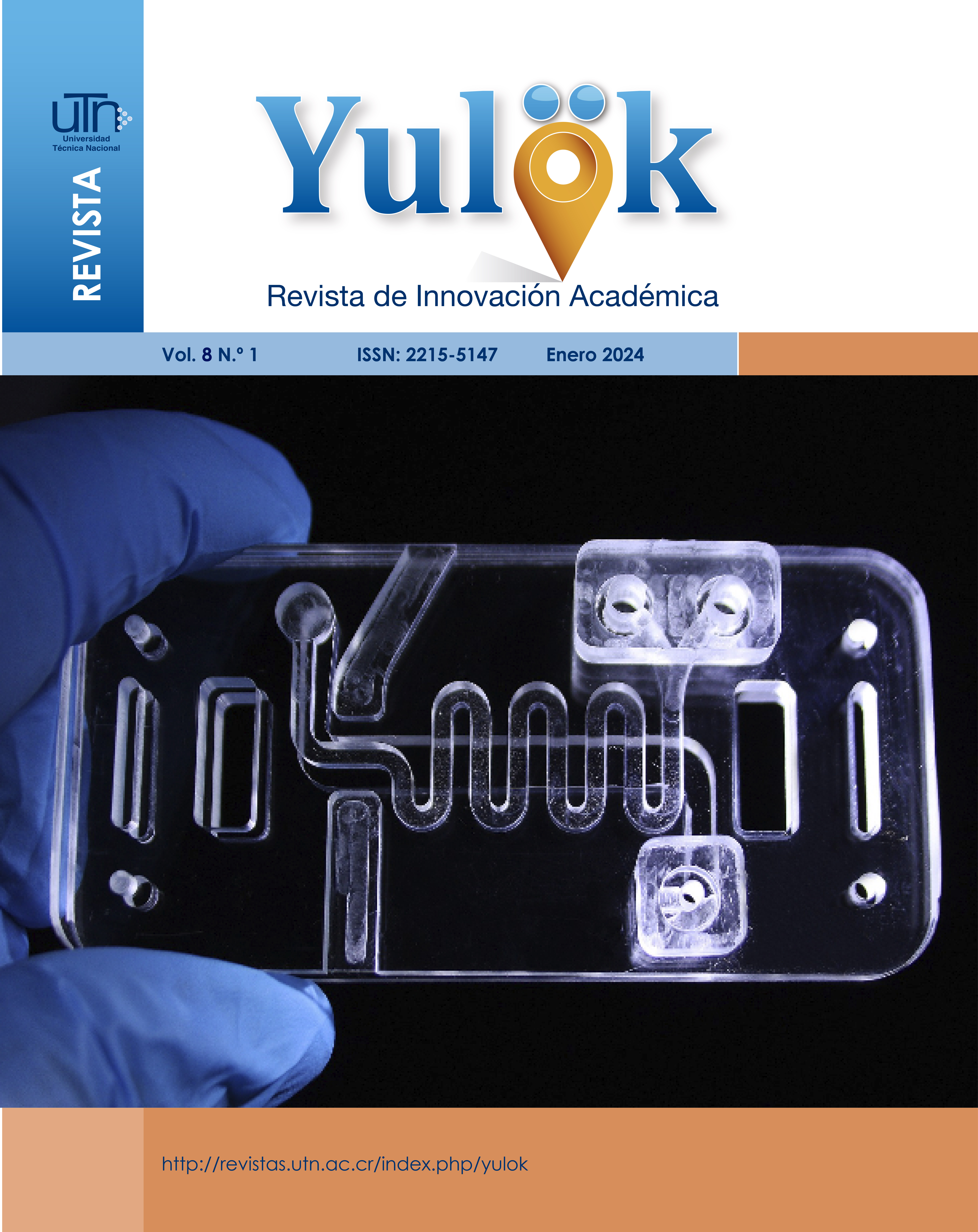A look at the Adaptation Process for Entering Students to the University
Main Article Content
Abstract
This research paper investigates the context of entering university students, their beliefs, motivations, social representations, and the needs with which they come to face in the introductory courses of each of the enrolled college majors. Academic skills help students, and the use of information and communication technologies (ICT) allows entering students to face issues presented by the barely known university world, in a more agile way. The objective of this research is to analyze the development of academic skills and the use of ICT in entering students into college majors that require mathematical skills, considering their social representations and beliefs that influence the attendance and the meaningful or successful learning processes. Methodology: information about the environment was collected gathered around the discourses of the students, who are the main source of information, allows to hear the voice of those who often remain silent in this academic life induction process; admission policies, and university adaptation have always come from the corresponding departments without listening to the voices of the protagonists. Therefore, at the end of the research, there is a proposal that addresses these concerns and systematizes the induction process for entering students to university.
Article Details
Section

This work is licensed under a Creative Commons Attribution-NonCommercial-ShareAlike 4.0 International License.
Todos los artículos publicados están protegidos con la licencia Creative Commons Atribución-NoComercial-CompartirIgual 4.0 Internacional
![]()
How to Cite
References
Andrade, L. (2018). La inteligencia emocional y su relación con el rendimiento académico en asignatura de estadística en educación superior. http://cybertesis.unmsm.edu.pe/bitstream/handle/20.500.12672/7715/Andrade_sl.pdf?sequence=3yisAllowed=y
Arancibia, S., Rodríguez, G., Fritiz, R., Tenorio, N. y Poblete, H. (2013). Representaciones sociales en torno a equidad, acceso y adaptación en educación universitaria. Psicoperspectivas, 12(1), 116-138. https://www.psicoperspectivas.cl/index.php/psicoperspectivas/article/viewFile/236/250
Aranda, R., Martinic, R., Sepúlveda, E., y Vásquez, A. (2016, November). Sistema de evaluación para iniciativas de acceso y permanencia en educación superior: el caso de la Universidad de Santiago de Chile. In Congresos CLABES. https://revistas.utp.ac.pa/index.php/clabes/article/view/1359/1858
Arias, D., y Durán, E. (2017). Persistencia académica en un programa de nivelación universitario venezolano: caso Universidad Simón Bolívar. Revista Digital de Investigación en Docencia Universitaria, 11(2), 289-307. http://www.scielo.org.pe/pdf/ridu/v11n2/a18v11n2.pdf
Arrieta, L., y Mercado, M. (2018). Nivelatorios: Estrategia para mitigar deserción académica precoz. Congresos CLABES. https://revistas.utp.ac.pa/index.php/clabes/article/view/1992
Artavia, A., Campos, Y., Coto, A., Jiménez, D., y Valverde, M. (2017). Estudio de validez predictiva del examen de diagnóstico y el curso de precálculo, en la Sede Rodrigo Facio de la Universidad de Costa Rica, en el año 2016. http://repositorio.sibdi.ucr.ac.cr:8080/jspui/bitstream/123456789/5802/1/41916.pdf
Chacón, E., y Roldán, G. (2021). Factores que inciden sobre el rendimiento académico de los estudiantes de primer ingreso del curso Matemática General del Instituto Tecnológico de Costa Rica. Uniciencia, 35(1), 265-283. doi: http://dx.doi.org/10.15359/ru.35-1.16
Díaz, V. (2017). Didáctica y prácticas en posgrado: una aproximación teórica. Revista UNIMAR, 34(1). Recuperado a partir de http://editorial.umariana.edu.co/revistas/index.php/unimar/article/view/1135
Estado de la Nación, P. E. (2019). Capítulo 5: Educación Superior en Costa Rica [2019]. http://repositorio.conare.ac.cr/bitstream/handle/20.500.12337/7743/CAP%205-EE-2019-WEB.pdf?sequence=1.
Ferrada, V., González, N., Ibarra, M., Ried, A., Vergara, D., y Castillo, F. (2021). Formación docente en TIC y su evidencia en tiempos de COVID-19. Revista Saberes Educativos, (6), 144-168. doi:10.5354/2452-5014.2021.60715
Fonseca, G., y García, F. (2016). Permanencia y abandono de estudios en estudiantes universitarios: un análisis desde la teoría organizacional. Revista de la educación superior, 45(179), 25-39. http://www.scielo.org.mx/pdf/resu/v45n179/0185-2760-resu-45-179-00025.pdf
García, N. G. (2019). Modelo de aprendizaje según Vygotsky. http://repositorio.utmachala.edu.ec/bitstream/48000/14526/1/ECFCS-2019-PSC-DE00018.pdf
Gastón, C. (2020). Elaboración de estrategias de inclusión y permanencia en educación superior (Doctoral disertación, Universidad Nacional de La Plata). http://sedici.unlp.edu.ar/bitstream/handle/10915/109676/Documento_completo.pdf-PDFA.pdf?sequence=1yisAllowed=y
González, M., Moyano, M., y Navarro, L. (2021). Comprensión de las representaciones sociales construidas frente a la decisión de permanecer o desertar del Programa de Psicología de la Universidad Santo Tomás, Sede Bogotá. https://repository.usta.edu.co/bitstream/handle/11634/43345/2021mar%C3%ADagonzález.pdf?sequence=1&isAllowed=y
Hernández, R., Baptista, P. y Fernández, C. (2014). Metodología de la Investigación. (6ta. Ed). D.F., México: McGraw-Hill.
La Nación. (10 de abril del 2021). 88% de colegiales egresados en pandemia desaprovechó cursos de reforzamiento de UCR. https://www.nacion.com/el-pais/educacion/88-de-colegiales-egresados-en-pandemia/UUOOTBTIGVGVTBUZLCPPYK2CAE/story/
Lanuza, F., Rizo, M., y Saavedra, L. (2018). Uso y aplicación de las TIC en el proceso de enseñanza-aprendizaje. Revista Científica de FAREM-Estelí, (25), 16-30. https://www.lamjol.info/index.php/FAREM/article/view/5667/5379
Pérez, I. (2016). El proceso de adaptación de los estudiantes a la universidad en el Centro Universitario de Los Altos de la Universidad de Guadalajara [Tesis de Doctorado, Universidad de Guadalajara]. https://rei.iteso.mx/bitstream/handle/11117/3591/ DIETesis%20Ignacio%20P%C3%A9rez_copy.pdf?sequence=5
Restrepo, M., Arce, G., y Simanca, F. (2020). Adaptación a la vida universitaria. : https://doi.org/10.18041/978-958-5578-45-6
Stelzer, A., Vernucci, S., Juric, L. C., Galli, J. I., y Guzmán, J. (2017). Regulación emocional y habilidades académicas: relación en niños de 9 a 11 años de edad. suma psicológica, 24(2), 79-86. https://reader.elsevier.com/reader/sd/pii/S0121438117300218?token=AD57658B794805693C0B7A649A13E5B028380CDA67A8B6234F3F67BCAB4CB7FBEBDF3989925AF0800360BAD748AD38BA
UNED. (2019). Ingeniería Industrial, ingreso al bachillerato. https://www.uned.ac.cr/ecen/component/content/category/25-ingenieria-industrial
UNESCO. (2015) Declaración de QINGDAO. https://unesdoc.unesco.org/ark:/48223/pf0000233352
UTN. (2017). Resolución R060-2017: Directriz para la implementación del Ciclo Introductorio. https://www.utn.ac.cr/sites/default/files/RESOLUCIÓN%20CICLO%20INTRODUCTORIO%20R-060-2017.pdf
Villalobos, L. (2019). Enfoques y diseños de investigación social: cuantitativos, cualitativos y mixtos. Segunda Edición, Costa Rica: EUNED.

